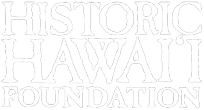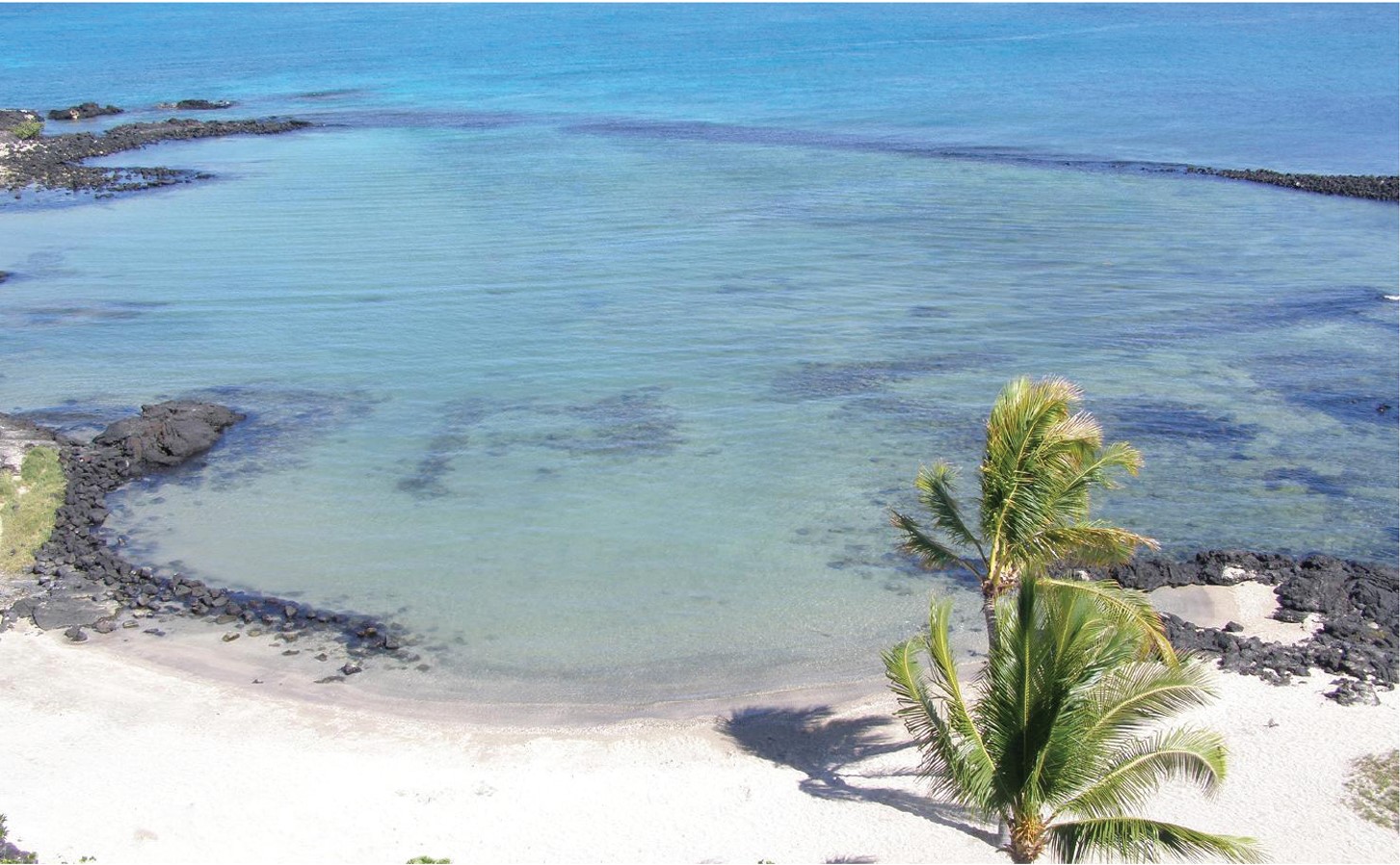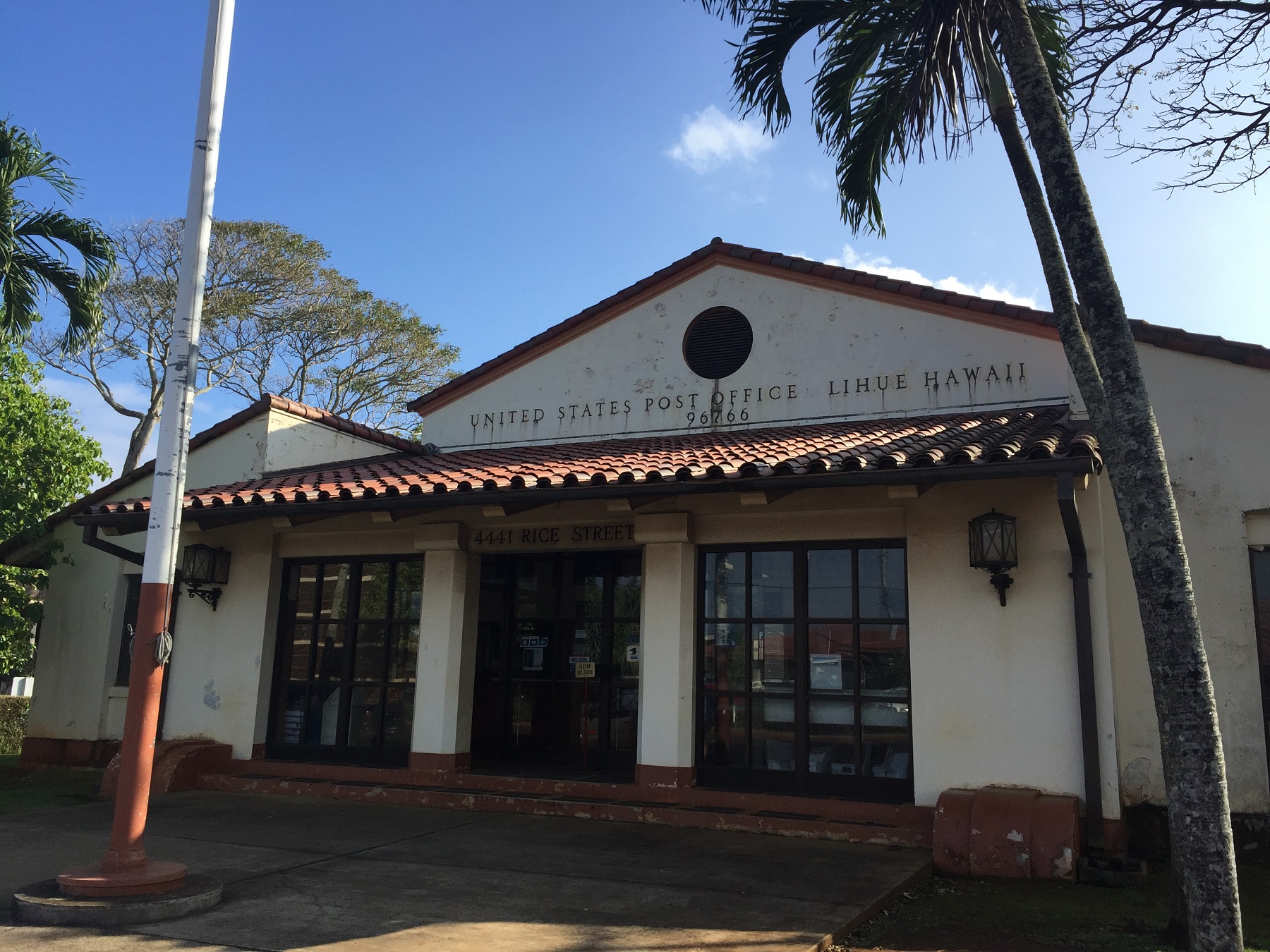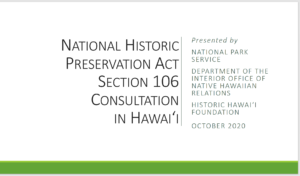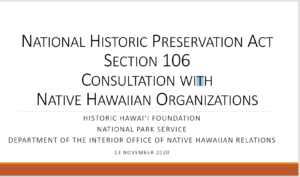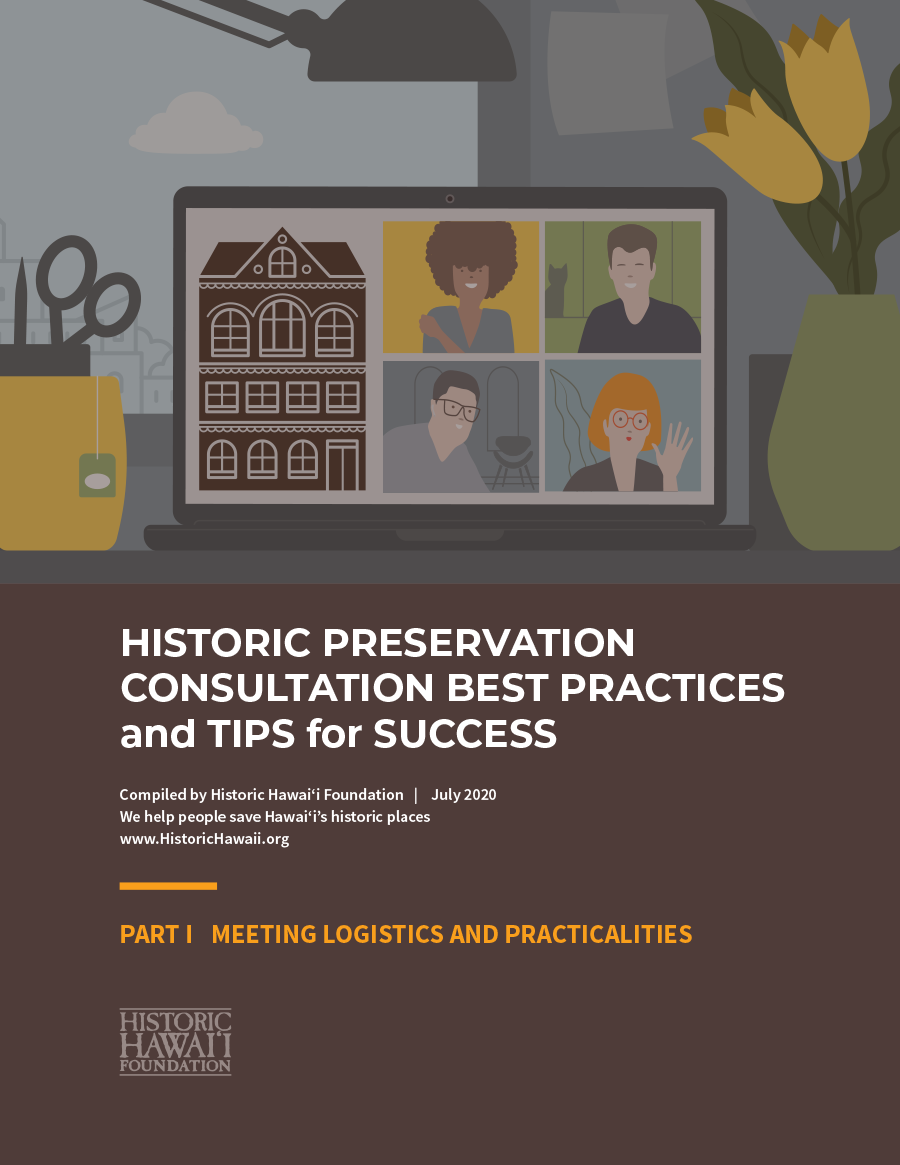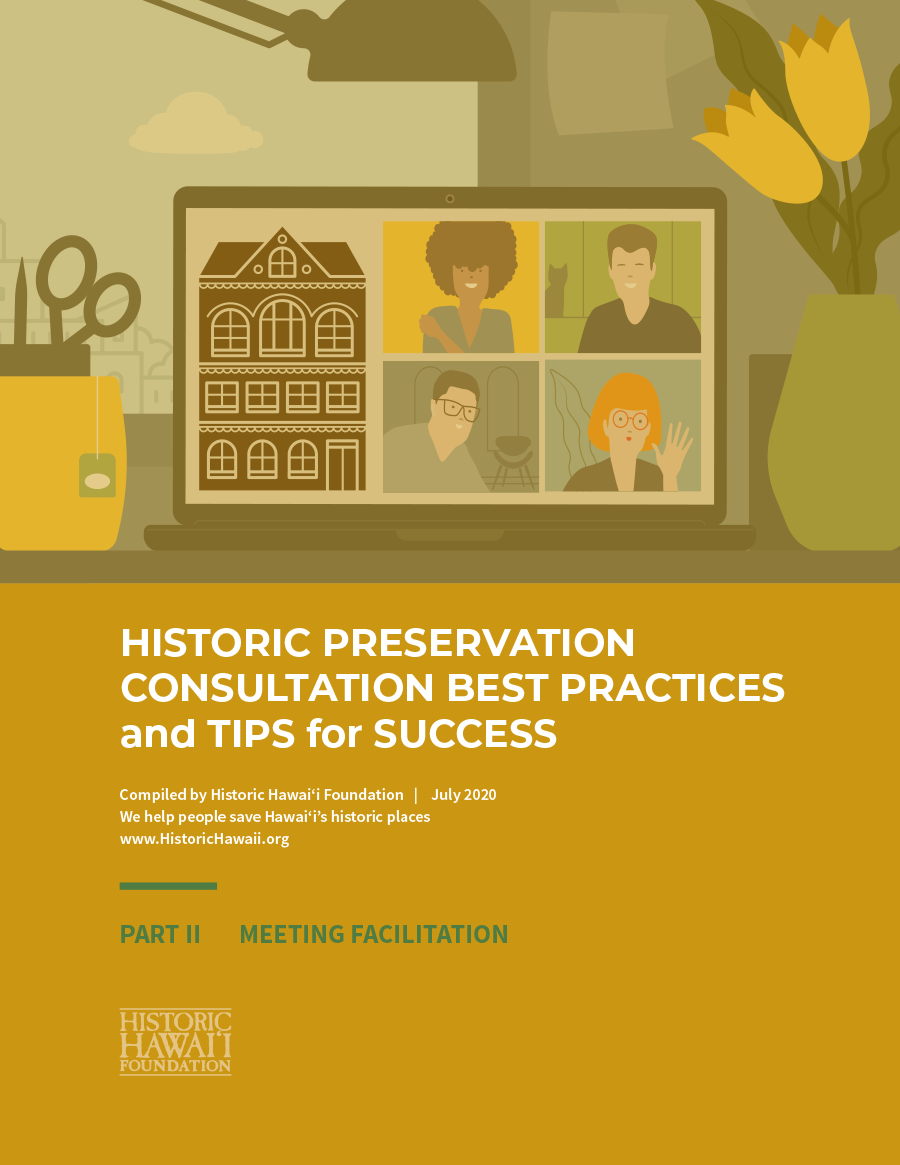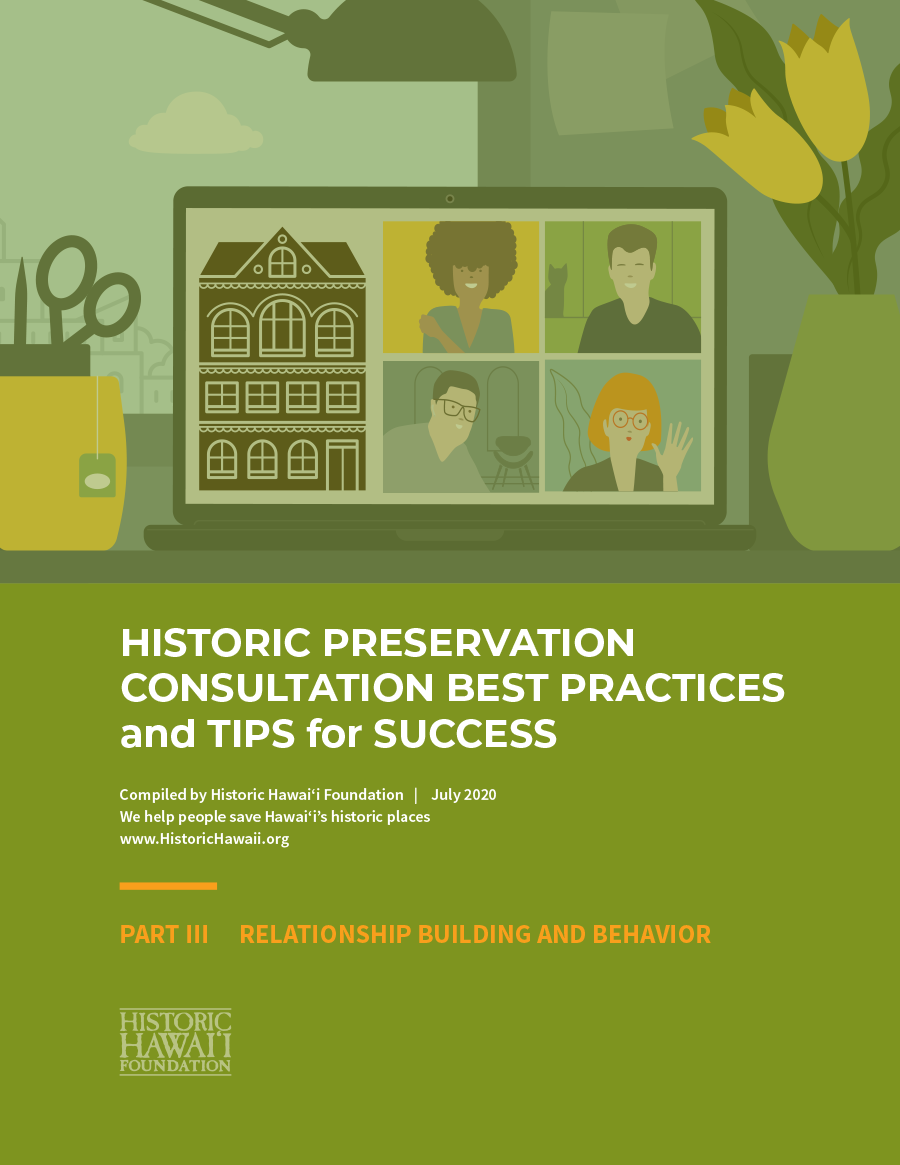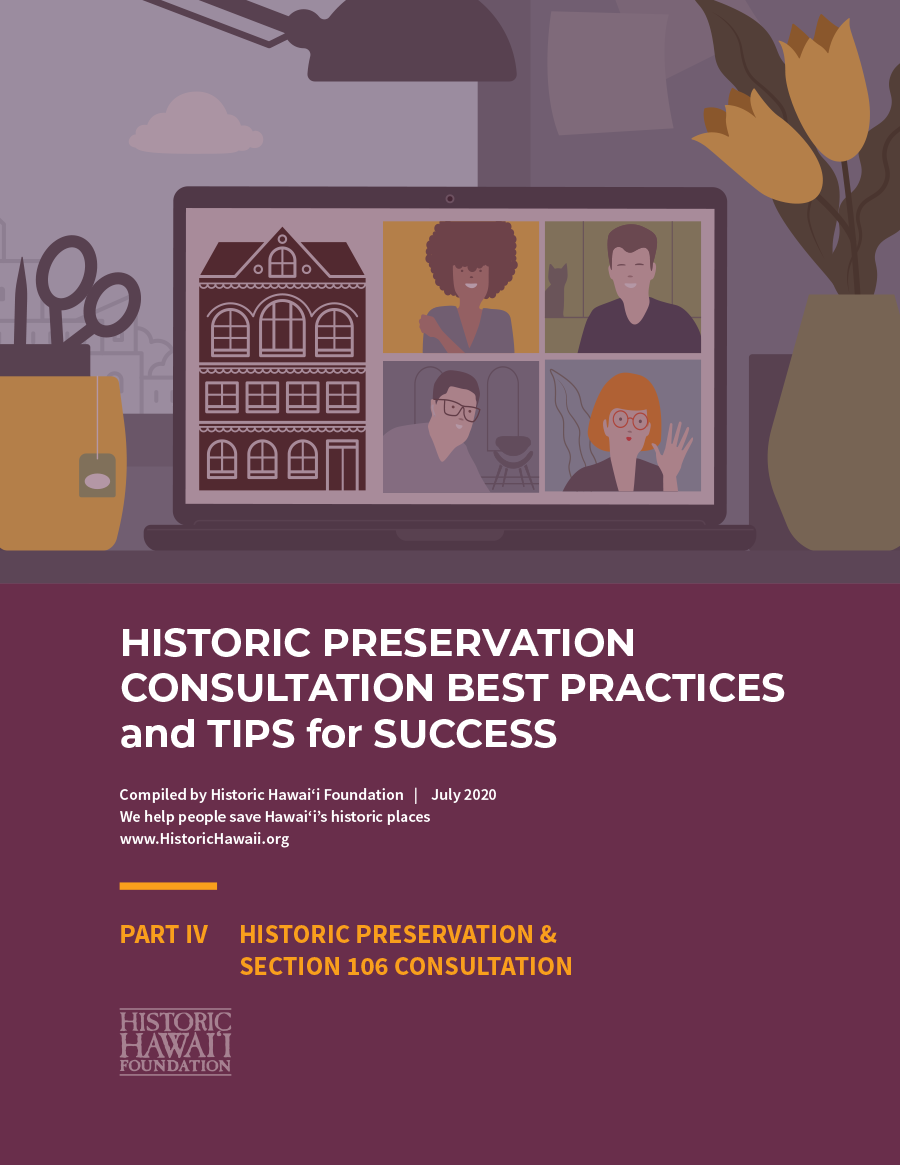Preservation Seminar
National Historic Preservation Act
Section 106 Consultation in Hawai‘i
Historic Hawai‘i Foundation, in partnership with the Department of the Interior’s National Park Service and Office of Native Hawaiian Relations, will offer two free seminars on the purpose, procedures and best practices for consultation to federal projects that affect historic properties.
PART 1: The Section 106 Four-Step Process
Date: Friday, October 16, 2020
Time: 10:00 – 11:30 a.m.
PART 2: Section 106 Consultation with Native Hawaiian Organizations
Date: Friday, November 13, 2020
Time: 10:00 – 11:30 a.m.
VIEW THE VIDEO REPLAYS AND PRESENTATIONS FOR PARTS 1 & 2 BELOW
National Park Service Civic Engagement Summary Report, Disaster Recovery from Eruption and Summit Collapse at Hawai‘i Volcanoes National Park in 2018
View the ReportThe seminars provide training to government agencies, professionals, community organizations and Native Hawaiian Organizations to aid their involvement & effectiveness in federal historic preservation consultation to protect historic sites and cultural landscapes.
PART 1: The Section 106 Four-Step Process
Date: Friday, October 16, 2020
Time: 10:00 – 11:30 a.m.
PART 2: Section 106 Consultation with Native Hawaiian Organizations
Date: Friday, November 13, 2020
Time: 10:00 – 11:30 a.m.
ABOUT THE COURSE
The training in two parts will present an overview of the National Historic Preservation Act process for consultation between federal agencies, State Historic Preservation Officer and local constituents—including Native Hawaiian Organizations—to resolve effects on historic properties from federal actions.
The goal is to provide skill development and information for the engagement between government, nonprofit, business and community interests as they interact, consult, and work on projects and undertakings to identify properties of historic and cultural significance and consult to resolve adverse effects to those properties.
Through the training attendees will learn:
• A general overview of relevant laws and regulations
• The special legal rights and opportunities for native Hawaiians
• Lessons learned by experienced practitioners
• Advice for those involved in preservation activities
WHO SHOULD ATTEND?
• Federal, state and local agencies who participate in Section 106 consultation in Hawai‘i
• Professionals who manage or contribute to Section 106 matters
• Native Hawaiian organizations and community members
• Community organizations or individuals with stewardship responsibilities for historic or cultural properties.
• Other members of the public or organizations interested in preserving historic & cultural sites which may be affected by federal undertakings
WHAT IS SECTION 106?
The National Historic Preservation Act requires federal agencies to consider the effects on historic properties of projects they carry out, assist, fund, permit, license, or approve throughout the country.
If a federal or federally-assisted project has the potential to affect historic properties, the agency must identify, assess and resolve any effects. The process by which this occurs is named for the section of the law that requires it and is known as the Section 106 process.
Section 106 provides the Advisory Council on Historic Preservation (ACHP), State Historic Preservation Office (SHPO), NHOs, applicants, interested parties, and the public the chance to weigh in on these matters before a final decision is made. This process is an important tool for citizens to lend their voice in protecting and maintaining historic properties in their communities.
OTHER RESOURCES
Free, online, on-demand courses are available from the Advisory Council on Historic Preservation. We recommend:
• What is Section 106? (15-minute short introduction and overview)
• Native Hawaiian Organizations in the Section 106 Process (90-minute NHO-specific course)
To take the free, online, on-demand courses, see https://www.achp.gov/training/elearning

